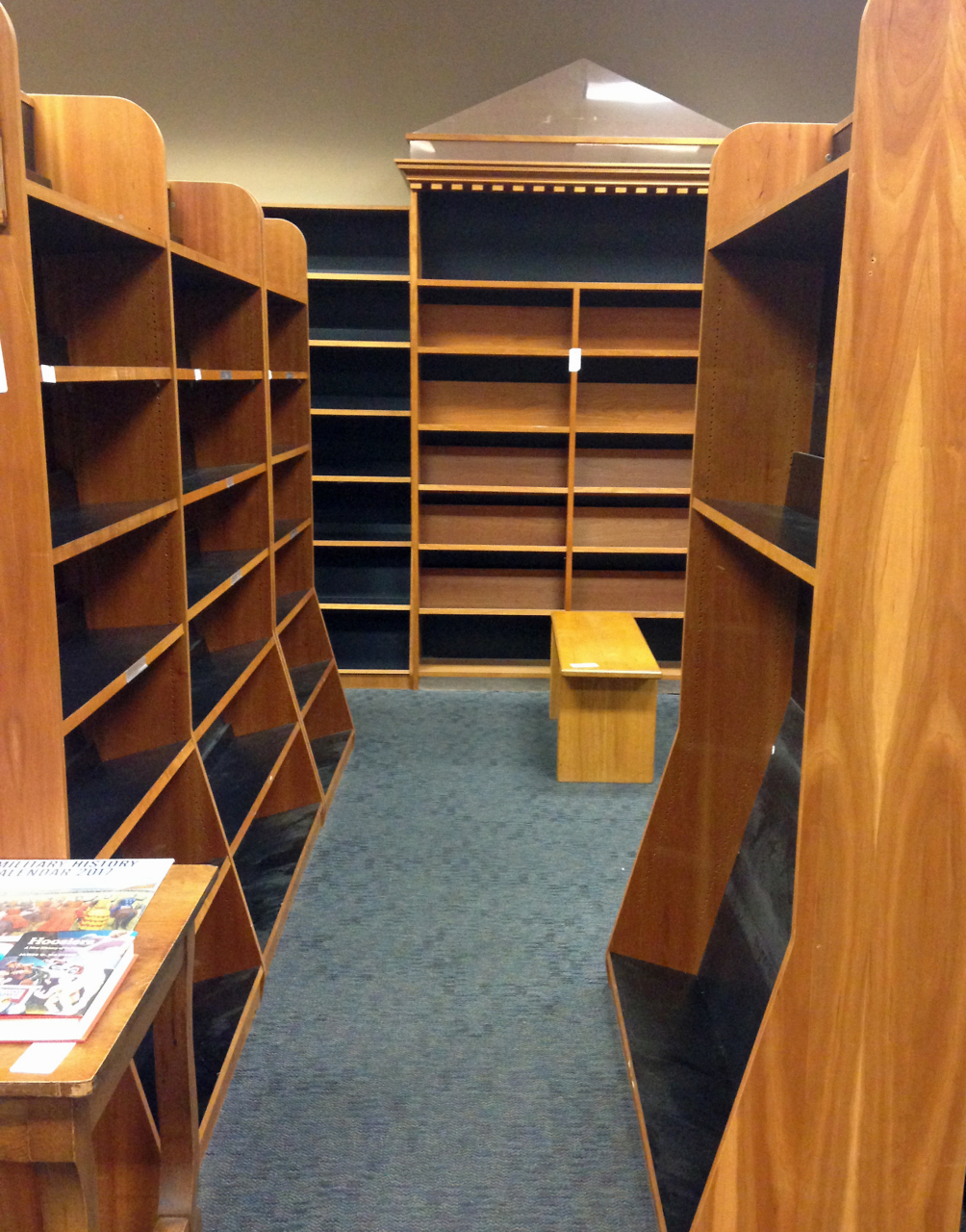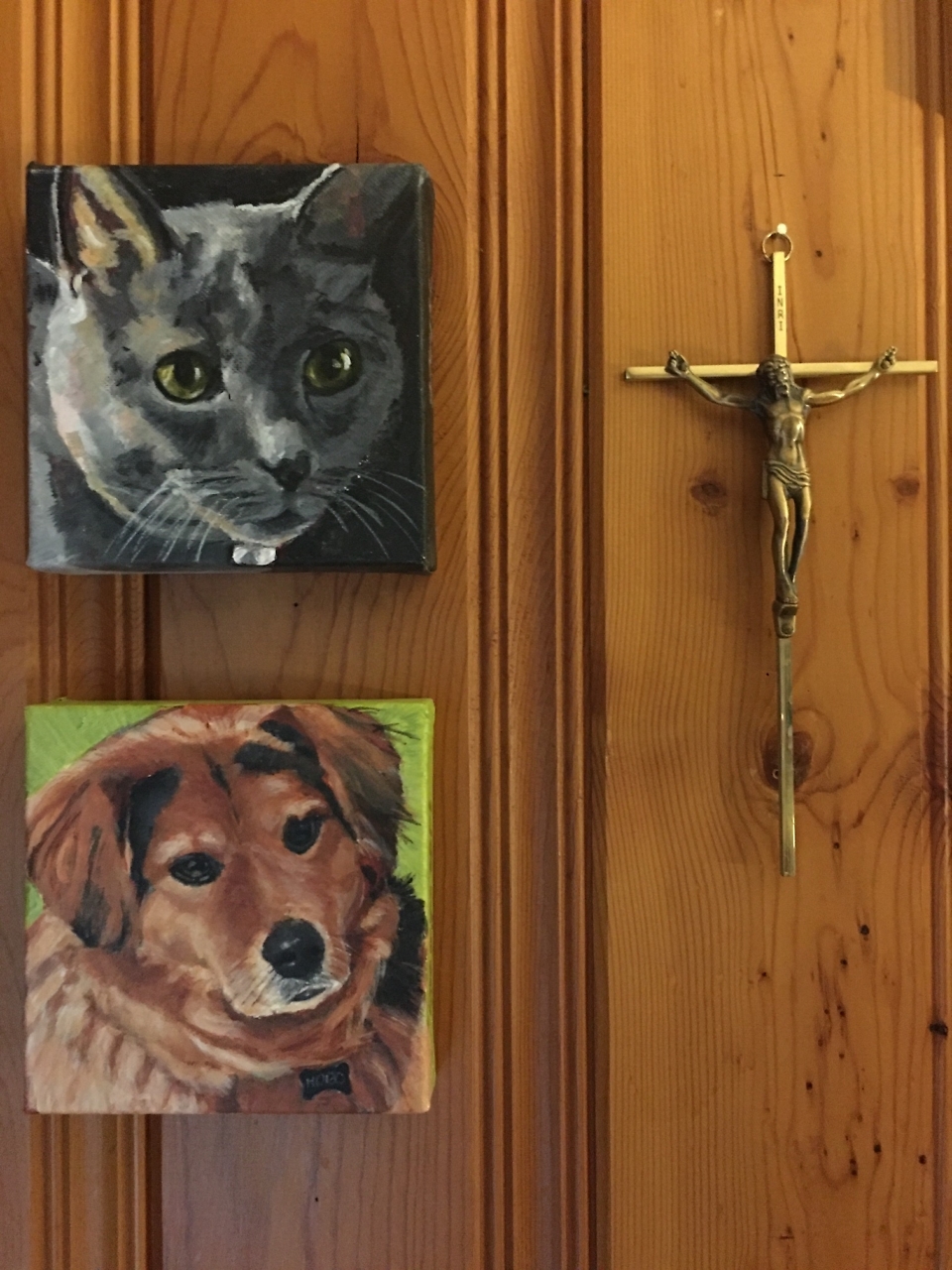Cooking Through COVID
On the power of feeding people during hard times
On March 3, the morning after a tornado nearly took out our house in East Nashville, I found myself texting my neighbors to ask if they needed hot coffee or a slice of homemade banana bread. Three of them came by holding their coffee mugs, bleary-eyed from lack of sleep, and we were able to be together for a few minutes as we compared notes on which trees had come down and how much damage was done to the church on the corner.
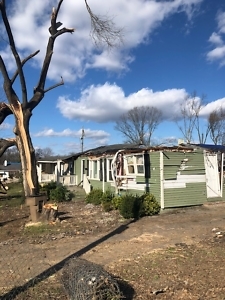
We had all lost power, along with 55,000 other Middle Tennesseans. Multiple tornadoes had ripped through the state overnight, leaving great swaths of destruction and two dozen people dead. Our block in the heart of Lockeland Springs, two miles from downtown Nashville and only a few streets away from the tornado’s path, would not have power restored for over a week. While my husband was on our roof assessing the damage from the fallen maple tree that split in half and took out the metal fence between us and the house next door, I just wanted to offer my neighbors a proper coffee with milk and sugar. I have never been so close to losing everything as I was that night.
Hard times have always pushed me into the kitchen, a place where I feel comfortable and safe. Feeding other people also makes me feel a little less powerless, which is perhaps the reason José Andrés went to Puerto Rico after Hurricane Maria and fed people for weeks. While there is no question that he provided the warmth and comfort of a hot meal to thousands of people who did not have electricity for months, I now know that the act of feeding others during a natural disaster also likely fed him as well.
That first night without power I made spaghetti with tomato sauce for my family on our gas stove, topped it with a mountain of parmesan cheese, and added a big salad with buttermilk ranch dressing and a lot of extra cucumbers. Then my husband, our daughter, and I sat at our new dining table in our newly renovated kitchen and ate our dinner on paper plates by candlelight. We then passed around all of the semi-melted ice cream from the freezer for dessert. Our nine-year-old daughter’s room is upstairs, and the tree that fell on the corner of our house missed her windows by just inches. She was understandably afraid to sleep there alone, so we set up sleeping bags in the living room and slept huddled together, the cat curled up nearby.
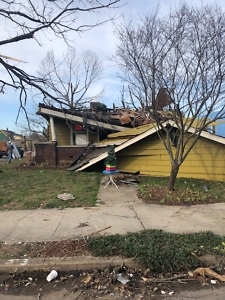
I struggled with feelings of survivors’ guilt in the following days, as just two blocks away our neighbors’ houses were sliced in half, the contents of their lives strewn about for all to see. A tall and stately Victorian home that we walked by every day on the way to school was almost unrecognizable: every window blown out, the entire roof missing, damage so extensive the house may be lost forever.
Many historic landmarks in our area were in the tornado’s path, like the Holly Street Fire Station — in service since 1914— and the 125-year-old East End United Methodist Church, its large, stained-glass window shattered, its brick structure crumbling on one side. The church withstood two previous tornados that blew through the area, one in 1933 and one in 1998, and it was used as a central hub for rescue workers in each case. This time, it was the church itself that needed rescuing. Even our little school just three blocks from our house was missing part of the roof, and the playground was strewn with glass and debris. Some of our favorite restaurants may never recover.
After seeing the damage, I went home feeling numb and cried. And then I started to cook.
I called a few friends and put out the word on Facebook for anyone who wanted to help, and I cooked the contents of my fridge to give to the volunteers, tree cutters, utility crews, and relief workers who descended on our neighborhood to start the cleanup process. A friend showed up with a wagon for us to transport the meals the two blocks to the firehouse, which had become a central drop-off location for donations of food and supplies. Another friend went grocery shopping for us and dropped the supplies off on my porch. And a good friend who used to cook in some of Nashville’s best restaurants came to help me cook.
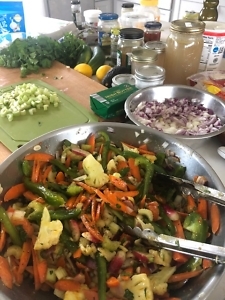
Together we made about 60-70 meals that first day and the next. We cooked many boxes of pasta and made tomato sauce in the largest pot I owned and served it with Caesar salad and crusty store-bought French bread. We baked heart-shaped sugar cookies from the dough I had in the freezer that was supposed to be for Valentine’s Day. My daughter decorated them, and we handed them out to the volunteers from all over the state who showed up to haul the debris from our yards.
In the months after the tornado, we moved from relief to recovery and repair. Each morning as I sip my coffee on my front porch, I listen to the sounds of roofers tearing shingles from my neighbors’ houses, the buzz of the chainsaw accompanying the birds as the weather turns from threatening to the most beautiful time of year in Tennessee. This year spring has been particularly beautiful, stretching out and flaunting its cool mornings, showering everything in lush, green leaves, the flowers lasting longer than usual. To look outside you would never know there is a global pandemic going on.
Quarantined at home with our families, we cannot gather and share in the collective sadness as we watch the death toll rise, and wonder when — or if — our lives will return to something resembling what they were before. So once again I have fallen back on one of the only things I know how to do during a crisis: feed myself and my family. I realize that it is a great privilege to be able to stay home right now as many others are considered “essential” and do not have this option.
My reliance on the healthcare workers, grocery store employees, farmers, and delivery drivers makes my privilege possible. This is something I struggle with. When our freedom is constrained by forces outside our control, it is natural to want to make sense of our world, however reduced it has become. Unlike during the days following the tornado, now I find myself unable to engage with my community, and I feel helpless. I cook to feel useful. I cook to calm my anxiety. I cook because life is meals and because I have an emotional connection to food and love to nurture people.
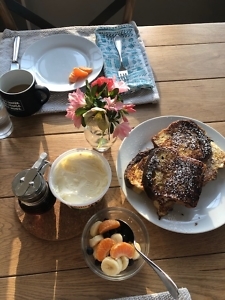
When everyone can safely gather, I want to have a big party and feed all of my friends and neighbors again. Maybe I’ll make a big paella in the backyard over a fire like I did for my husband’s 30th birthday. We’ll serve sangria from a big glass jar with a spout that leaks and leaves red stains on the tablecloth. And there will be plenty of dessert — chocolate sheet cake, carrot cake, strawberry pie. We’ll drink wine and hang out and celebrate being able to do this again…someday.
I may not remember how I felt or what we did to pass the time during this long quarantine, but I will probably remember the food we ate. I’ll remember I made lamb shanks for our quiet Easter celebration with a splendid cardamom-pistachio carrot cake for dessert. I’ll remember baking with my daughter every week to give her some stability during these unstable times. And I’ll remember how, even on the days when I didn’t manage to do anything productive, I still cooked a couple of meals for myself and my family and we didn’t go to bed hungry.
Tomorrow I’ll sip my coffee in the morning and things will feel possible again. I might even exercise or get some writing done. I’ll definitely read a book and I’ll help my daughter with the day’s online lessons. And then it will be time to make lunch again.

Copyright © 2020 by Joy Ramirez. All rights reserved. Joy Ramirez holds a Ph.D. in comparative literature. She taught Italian at Vanderbilt University and Colorado College. She now writes and lives in East Nashville.
